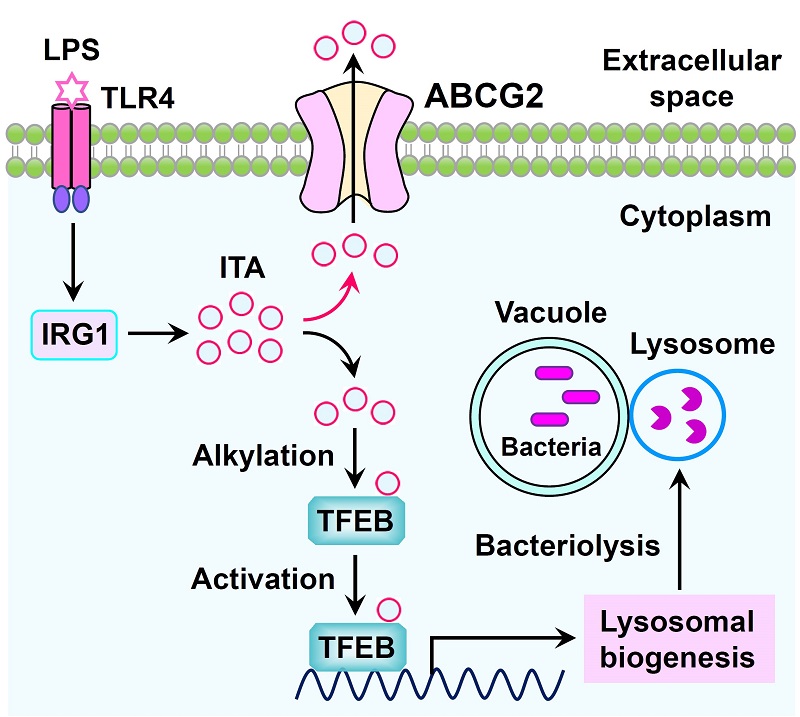
Itaconate is a cellular metabolite with immunoregulatory functions mainly produced by the mitochondrial enzyme Immune Responsive Gene 1 (IRG1) in inflammation-activated macrophages. However, the mechanism of itaconate concentration regulation within macrophages and its biological significance remain unclear.
In a study published in Cell Metabolism on Jan. 4, researchers led by Prof. LI Xinjian from the Institute of Biophysics of the Chinese Academy of Sciences have identified the extracellular transport protein ATP-binding cassette transporter G2 (ABCG2) for itaconate and elucidated the molecular mechanism by which ABCG2 inhibits the innate immune capacity of macrophages by effluxing itaconate, suggesting that ABCG2 may be a new target for antibacterial therapy.
ABCG2 is a member of the ATP-binding cassette (ABC) transporter superfamily, it is widely expressed in tissues and organs such as the intestine, liver, placenta, and blood-brain barrier. It actively pumps out metabolites and small molecules with diverse chemical structures.
Using mass spectrometry, flow cytometry, and reconstituted liposome analysis, the researchers confirmed that ABCG2 is the extracellular transport protein for itaconate, and that its transport activity depends on ATP hydrolysis.
To further investigate the physiological function of ABCG2-mediated extracellular transport of itaconate, the researchers constructed a Salmonella typhimurium-infected mouse model and found that ABCG2, through its ability to transport itaconate out of cells, inhibits the host's antibacterial innate immunity.
Mechanistic studies revealed that ABCG2-mediated extracellular transport of itaconate can downregulate the intracellular concentration of itaconate, limit itaconate-mediated activation of TFEB, reduce lysosomal biogenesis, and subsequently inhibit the antibacterial innate immune capacity of macrophages.
In the future, screening for small molecule inhibitors targeting ABCG2 represents a potential strategy for developing new antibacterial drugs.

ABCG2 is an itaconate exporter. ABCG2-mediated itaconate export limits antibacterial innate immunity by alleviating itaconate-induced TFEB activation and lysosomal biogenesis. (Image by LI Xinjian's group)

86-10-68597521 (day)
86-10-68597289 (night)

52 Sanlihe Rd., Xicheng District,
Beijing, China (100864)

